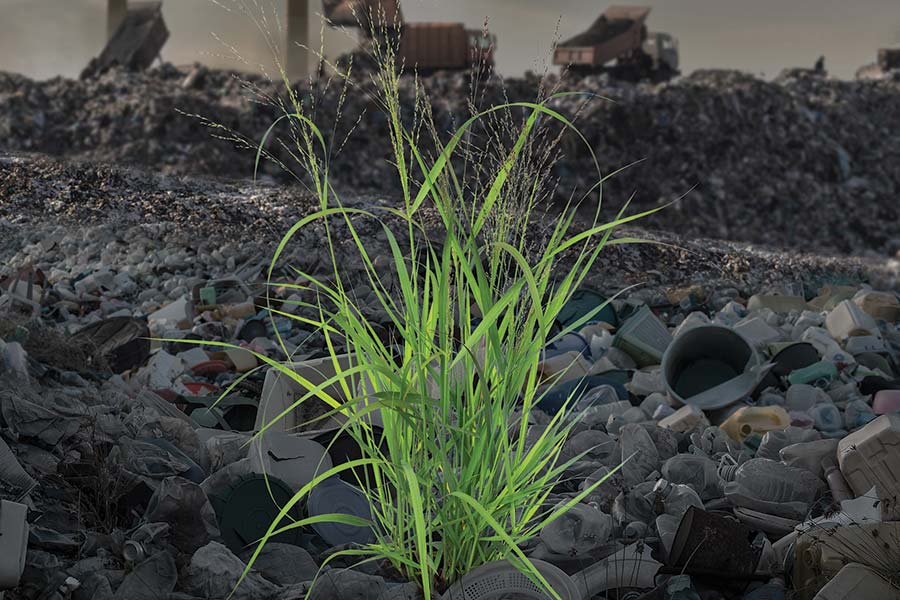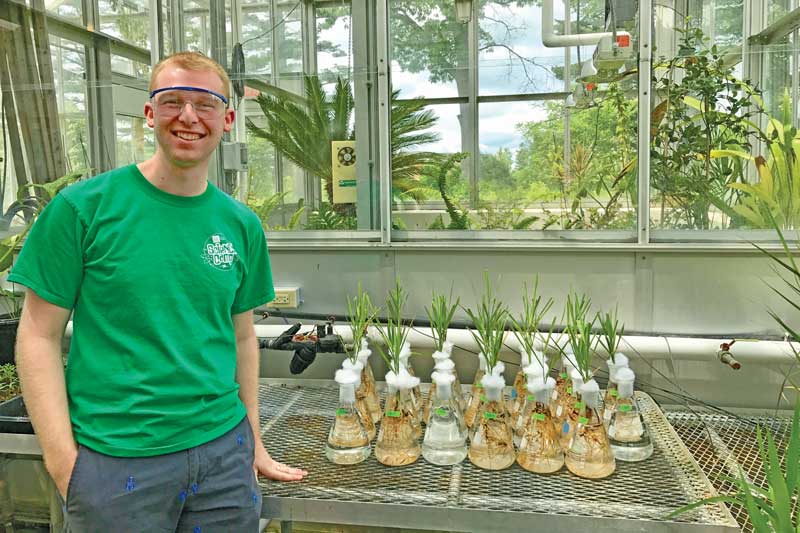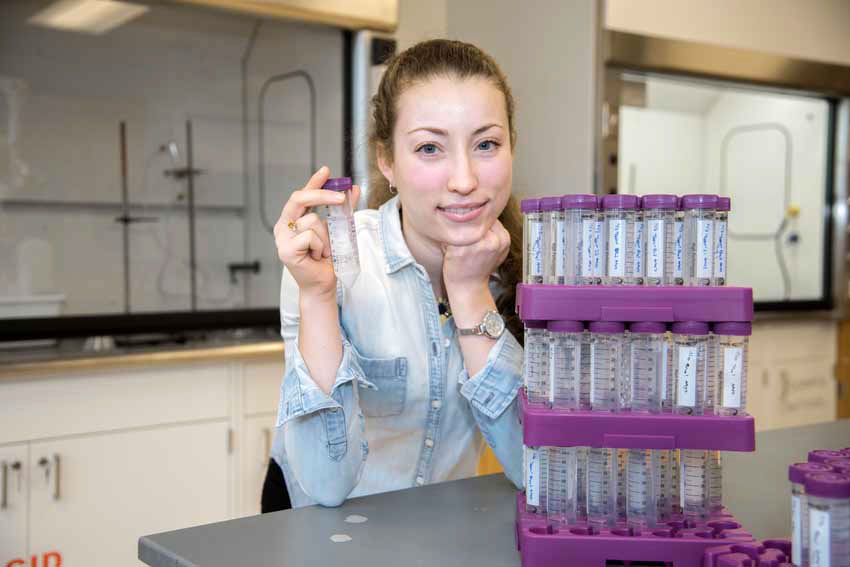ACADEMICS
Groundbreaking Research Can Heal the Ground
Student-authored research about a plant that removes BPA from soil is published in a top-tier international journal.
by Julie Long and Emily Kirch

New research from Nazareth College students and faculty offers the first evidence that a plant called switchgrass (native to most of the U.S. and Canada) can significantly help to remove the invisible toxin Bisphenol-A, better known as BPA, from the environment. The study was recently published in a top-tier international journal, Scientific Reports, part of the prestigious Nature Research journals. Two Nazareth students who recently graduated are listed as the first authors on the study, reflecting the high-level research experiences that Nazareth offers undergraduate students.
Each time you open a can of food to prepare a meal or you drink from a plastic water bottle, there is a risk that you are putting BPA into your body. Those used cans and bottles also sit in landfills and leach BPA into the soil near neighborhoods where people live. Plastic wastes polluting the earth’s water and accumulating on land, releasing toxic leachates, are one of the greatest global threats of our time. BPA is a synthetic ingredient, or a plasticizer, used in plastic food and drink packaging, kitchenware (like that used to microwave food), inner coatings of cans, jar lids, and water bottles. BPA has been found to cause numerous adverse health outcomes, including infertility, tumor growth, obesity, and cancer.
Jacob C. Phouthavong-Murphy ‘17 and Alyssa K. Merrill ‘17, founding members of the Nazareth College Environmental Quality and Remediation (EQR) Research Team, started community-focused environmental research along with corresponding author Padmini Das, Ph.D., director of the environmental science and sustainability program and assistant professor in biology, and Stephanie Zamule, Ph.D., director of the environmental toxicology program. They worked on this project for two and a half years and co-wrote the paper with an interdisciplinary team of professors.
The research started when Das, with more than a decade of experience in phytoremediation research (environmental cleanup using a suitable plant), determined that switchgrass might be helpful in removing BPA. She brought her idea to her students to put into action with their research — which they did, to excellent effect. “It is rare for undergraduate students to have their names in scientific publications, and first authorship is almost unheard of,” said Das.
Before the study was published, the students got to present their findings at the prestigious 2017 Geological Society of America National Conference in Seattle, Wash.
The team’s findings showed that two varieties of switchgrass, both native to western New York, showed excellent ability to clean up BPA from the environment. Within only three months, both varieties removed more than 40% of the BPA from the sample.
Switchgrass is particularly suitable for use in any contaminated environment because it is non-edible for humans, is already widely used for erosion control, and has great potential as a biofuel source. It’s also low-cost and sustainable.
Now that switchgrass shows a great potential for removing BPA from the environment, the Nazareth College EQR Research Team’s goal is to work with landfill engineers to treat the landfill leachates, to benefit neighborhoods.
Phouthavong-Murphy says this research experience opened up many possibilities for his career and his future as a doctor. Merrill, now a University of Rochester graduate student working toward her Ph.D. in environmental toxicology, says that “knowing the research helped find a solution that can be used around the globe is incredible and inspiring.”
Julie Long is Nazareth's chief public relations officer. Emily Kirch is a coordinator in Nazareth's Marketing & Communications Department.

Jacob C. Phouthavong-Murphy '17
Read about his post-college experience in medical school: Well prepared for "the hardest thing I've ever done" >

Alyssa K. Merrill '17